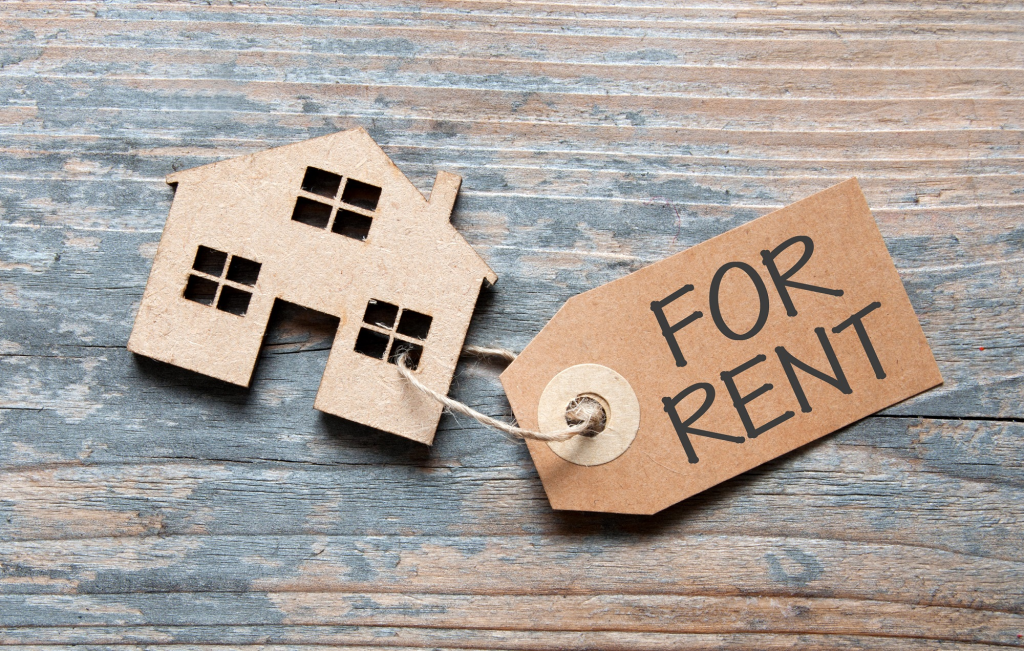Mortgage Rates on Investment Properties
September 27, 2022Should I get an LLC for Rental Property with a Mortgage?
September 27, 2022- Applying for an investment property mortgage
- Getting an investment property mortgage
- Investment property mortgage options
- Residential Capital Partners
- What are investment properties?
- What are the mortgage rates for investment properties?
- What are the requirements for investment property mortgages?
- What to consider before buying an investment property
- Who are the best investment property mortgage providers?

Owning an investment property is a wonderful way to diversify your portfolio, whether by flipping it for profit or generating passive income through rent. However, there is typically a large start-up cost associated with real estate investing. Luckily, investment property loans are available to help you turn your dream of being a landlord into reality.
You must fulfill various requirements to get a loan for an investment property. Understanding how investment property loans work, the different types, and the specific conditions associated with each help you make the right decision. This piece covers all you need to know about getting a mortgage for an investment property.
What are investment properties?
Real estate purchased to make money, whether through appreciation or rental revenue, is referred to as an investment property. Investment properties are often bought by a single investor, a couple, or a group of investors trading collectively. Investment properties can be residential (such as single-family homes, townhouses, and condominiums) or commercial (such as hotels, restaurants, and retail stores). The most typical kind of residential investment property is a single-family home.
Investors that buy investment properties seek to generate profit by either collecting rent from tenants or flipping them for a profit in the case of renovated buildings. Another option is to keep the property long enough for its value to rise before selling it.
What to consider before buying an investment property

Buying an investment property is no small investment. There are many factors to consider before taking the bold step. Real estate investing is usually touted as a good investment. However, it has both good sides and bad sides.
Some pros of buying an investment property include;
- You might be able to sell your home and turn a profit if the value increases significantly.
- The expenses associated with purchasing and maintaining your property can be written off as tax deductions.
- Monthly rent payments provide a steady source of income.
However, buying a rental property is not always rosy. Some downsides to this investment include;
- You could lose money while trying to flip or sell the house
- You may be unable to get adequate tenants to fill up housing units or may get bad tenants that don’t keep up with rents. In such a case, you will lose money through maintenance while not making the required profit.
- You often have to hire a property manager to oversee your property’s maintenance, costing you more money.
To ensure that you enjoy all of the pros with non of the cons when buying an investment property, you must consider the following factors before proceeding.
Current trends in the housing market
The current trends in the housing market determine how well your investment in a rental property will pay off. Thus, you must study the market closely before buying a property. For example, buying a property when more people are renting than buying will likely put you in a net loss, as you will struggle to get tenants for your property. Similarly, buying a home when mortgage rates are generally high will be a bad investment since you will likely incur losses. If you’re planning to flip a property, you have to be sure that there are many potential buyers on hand. Meanwhile, if you plan to hold on till the property appreciates in value, you have to ensure that the market trends in the area suggest that property values rise. You also have to ensure that your property’s design will be fashionable when you want to sell.
So take plenty of time to analyze the current housing market trends, future trends, and the qualities of your property before making a purchase.
Property Taxes
Every homeowner must pay property taxes to support their local government. Your property’s value determines the amount you pay in taxes. Before buying an investment property, you must get an estimate of the taxes you will pay. You also have to assess how the tax payments will affect the property’s overall profitability.
Property Management
Another major consideration when getting an investment property is property management. You must choose whether you will manage maintenance, tenant management, and property repairs yourself or whether you will employ a property manager to perform these tasks for you.
If you decide to handle management tasks, you must dedicate much of your time to fulfilling management tasks. However, if you decide to outsource this role, you have the time to focus on other engagements but have to pay the property manager. Carefully consider the pros and cons of each decision and how you can work around constraints before buying an investment property.
Getting an investment property mortgage

An investment property mortgage is a loan obtained to purchase an income-generating property. Investment property mortgages work similarly to residential property mortgages. However, there are certain differences between both.
Lenders consider investment properties high-risk investments, even more than second-home mortgages. The reason is simple. Suppose, for instance, an investor takes out an investment property mortgage. Now they have a primary home mortgage and an investment property mortgage. Suppose they experience a financial difficulty that impedes their ability to settle their monthly mortgage payments. In that case, the investor would be more inclined to save their primary home over their investment property loan, causing them to default on the investment property loan. Today, lenders experience higher default rates with investment property loans over others.
Lenders typically set steeper requirements for investment property loans to compensate for the higher default rates. In addition, lenders also set higher interest rates for these properties.
What are the requirements for investment property mortgages?
Lenders set stricter requirements for investment property loans to cover the higher risks they incur. In fact, not many lenders give investment property loans, even if you meet the requirements. Lenders who have previously had bad experiences with these loans tend to shy away from providing them again. The stricter requirements set by lenders for investment property loans typically include the following:
- Higher credit scores: Lenders may give you a residential property mortgage with a credit score of 620 or even as low as 580. However, this is not the case with investment property mortgages. Lenders typically require credit scores above 640 before offering you an investment property mortgage. However, to get better rates, you would need higher credit cores, up to 740.
- Higher down payments: Residential property mortgages may require you to make a minimum down payment of 3%. However, with investment property mortgages, lenders typically require that you make higher down payments to a minimum of 15%. However, most lenders will request down payments of up to 20 or 25%.
- Higher cash reserves: Another thing that lenders require from your investment property borrowers is to have large cash reserves. This may be in the form of raw cash or liquefiable assets. Lenders want to be sure you can settle mortgage payments without rental income. Having higher cash reserves also positively affects your mortgage rates.
- Low debt-to-income (DTI) ratio: Lenders require that you have a very low debt-to-income ratio. The typical required DTI for an investment property mortgage is 36%. However, some lenders may allow up to 40%. But smaller values mean lower mortgage rates.
The exact requirements for an investment property mortgage may vary between different lenders.
What are the mortgage rates for investment properties?
As previously mentioned, loans for investment property often have a higher rate of default. Lenders must charge higher mortgage rates for investment properties to account for the increased risk that the borrowers could default. Rates for an investment home will typically be between 0.5% and 8% higher than those for a primary dwelling. Buyers can expect interest rates to start around 6.5% to 6.75% (6.572 – 6.822% APR) for a single-unit investment property, using the current average rate of 6% (6.072% APR) for a primary residence.
With hard money loans, these rates could be greater. Typically, your credit score and down payment impact the interest rate for investment property loans. You may even be required to pay credit points if you have a poor credit score.
Investment property mortgage options
Several options are available to investors who want to get investment property mortgages. These options have varying characteristics and use cases The most popular mortgage options include;
Conventional loans
The most typical way for investors to fund their investment properties is to take out a traditional mortgage loan. Conventional mortgages are provided by banks, credit unions, and mortgage brokers. These mortgages are not backed by the federal government and adhere to Fannie Mae’s or Freddie Mac’s guidelines.
Conventional loans for investment properties typically require a down payment of 20%. However, some lenders may require up to a 30% down payment. Your credit history, debt-to-income ratio, and down payment significantly impact your ability to get approved for a conventional loan. These factors also affect your mortgage rates.
Conventional loans typically offer 30 and 15-year fixed-rate mortgages. You may also opt for an adjustable-rate mortgage. The process of applying for a conventional investment property loan is similar to that of applying for a residential loan. Generally speaking, conventional loans are harder to qualify for and have longer loan-to-approval time. These loans are not practical when you have a slim window to close a deal. However, they are much safer and allow you more time to plan and pay off.
Hard Money Loans
Hard money loans are very different from conventional loans. These loans are not offered by traditional banking institutions but by individuals and private lending companies. Hard money loans are easier to qualify for since these lenders rarely look at your credit history. Rather, they look at the income-generating potential of your property, as well as your experience in real estate investing. A larger down payment and cash reserves may get you favorable rates with hard money lenders.
Hard money loans have a quick loan-to-approval time, making them ideal for quick purchases. Hard money loans are practical when you intend to renovate and flip a property for a quick profit.
However, hard money loans have many downsides. Most notably, these loans have ridiculously high rates and short terms. Typically, lenders may set rates as high as 11-13% while setting terms less than 35 months. For all their perks, hard money loans are impractical when you plan to hold a property long-term. These loans should be considered a last resort when other options fail.
Private Money Loans
Another source of funding for buying investment properties is taking a loan from a private individual. This individual may be a friend, family member, neighbor, or coworker. If you do not have anyone in a position to loan you money, you may seek a lender by going to a local real estate networking event.
Private money loans have many perks. Most importantly, they are more straightforward with fewer formalities. Typically, all the lender requires is to have a good relationship with you. They may not bother about your credit scores or other formal requirements. Private money loans also tend to have very lenient terms, allowing you to pay lower rates. On the flip side, private money loans may be predatory.
Private money loans are typically protected by a written agreement that gives the lender the right to foreclose on your property if you cannot make your payments. Before you sign an agreement with a loved one, carefully examine how your relationship with the person lending you money may end if you default.
Home equity loans
You can fund the acquisition of your investment property by taking out a home equity loan against the equity on your primary residence. Many lenders permit investors to borrow as much as 80% of the equity in their house. Lenders often conduct credit checks and home appraisals to verify the true value of your property and determine your creditworthiness.
Home equity loans are simple and give investors an easy way to raise money to purchase investment properties. However, they are riskier for borrowers if they fall behind on payments and often have higher interest rates than residential mortgages. Home equity loans are therefore better suited to investors with reliable sources of income who can make timely payments on both the new loan and the old mortgage.
Applying for an investment property mortgage
Applying for an investment property mortgage is not much different from applying for a regular residential mortgage. The steps include;
- Find a lender with a good rate and apply for preapproval. Getting pre-approved for a mortgage lets you know what kind of properties you can afford.
- Search for a property and make an offer. This property should have high potential and be in a good location. It is best to search for properties that cost within your preapproved amount.
- Fill out a loan application.
- Provide required documentation. These include bank statements, tax information, current leases, etc.
- Pay for investment property appraisal. The appraisal process assesses the average rent collected in the area.
- Agree on the terms of the loan
- Go through the underwriting process
- Sign the final papers and close the deal.
Who are the best investment property mortgage providers?
There are many top investment property mortgage providers in the U.S. Some of the very best of the bunch include;
Quicken loans
Quicken loans operate nationwide and offer various mortgage options. This company operates through an online channel that makes loan applications easy for borrowers. Quicken also provides borrowers with highly competitive rates, making it a very good option. The current mortgage rates for a 30-Year and 15-Year Fixed mortgage are 5.25% and 4.625%, respectively.
Quicken Loans provides options for single-unit multi-unit investment properties with fixed- and adjustable-rate home loans, mortgage refinancing, and jumbo loans for higher-priced homes.
Residential Capital Partners
The most unique feature about residential capital’s investment property loans is that they allow you to make a 0% down payment for fix-and-flip loans and bridge loans for rentals. This feature makes residential capital the go-to for fix-and-flip loans. The biggest advantage of a 0% down payment is that it frees up cash for other investments, including house repairs. On the flip side, residential capital partners only offer mortgages to LLCs. thus, you cannot enjoy this benefit as an individual.
PennyMac
PennyMac is renowned for its excellent service delivery. Besides getting various mortgage options, you also get fast approvals and funding. However, PennyMac generally has higher mortgage rates and requires you to have higher cash reserves.
Bottom Line
Investment property mortgages enable you to finance an income-generating property. However, these loans are usually harder to get since lenders generally consider them high-risk. Qualifying for an investment property loan requires you to have higher crest scores, better debt-to-income ratios, and make higher down payments on your loan. The more excellently you meet these requirements, the lesser your mortgage rates. However, you may opt for hard money or private loans if you cannot match conventional requirements. Applying for an investment property loan is rather easy, and you will get excellent rates if you know where to look.
Looking for the best rates on investment property mortgages? Then look to Aurum & Sharpe. We are a top mortgage broker serving many states across the U.S. With over 29 years of experience, we have helped numerous clients enjoy hassle-free journeys to becoming landlords. Our services range from non-QM loans to refinancing for investment properties. We guarantee the most competitive rates on the market while offering splendid service. So pick up your phone now and contact us at 9177404325 to book an appointment, or use the online form to get in touch.
Mortgage Rates
DSCR Mortgage: 7.375%
Commercial Mortgage: 7.5%
Single family, Condo Investment Property: 7.375%
Portfolio of Residential Homes: 7.5%
Calculate Your Monthly Payment
Mortgage Information
Monthly Payment
Principal and Interest: $0
Total Monthly Payment: $0


